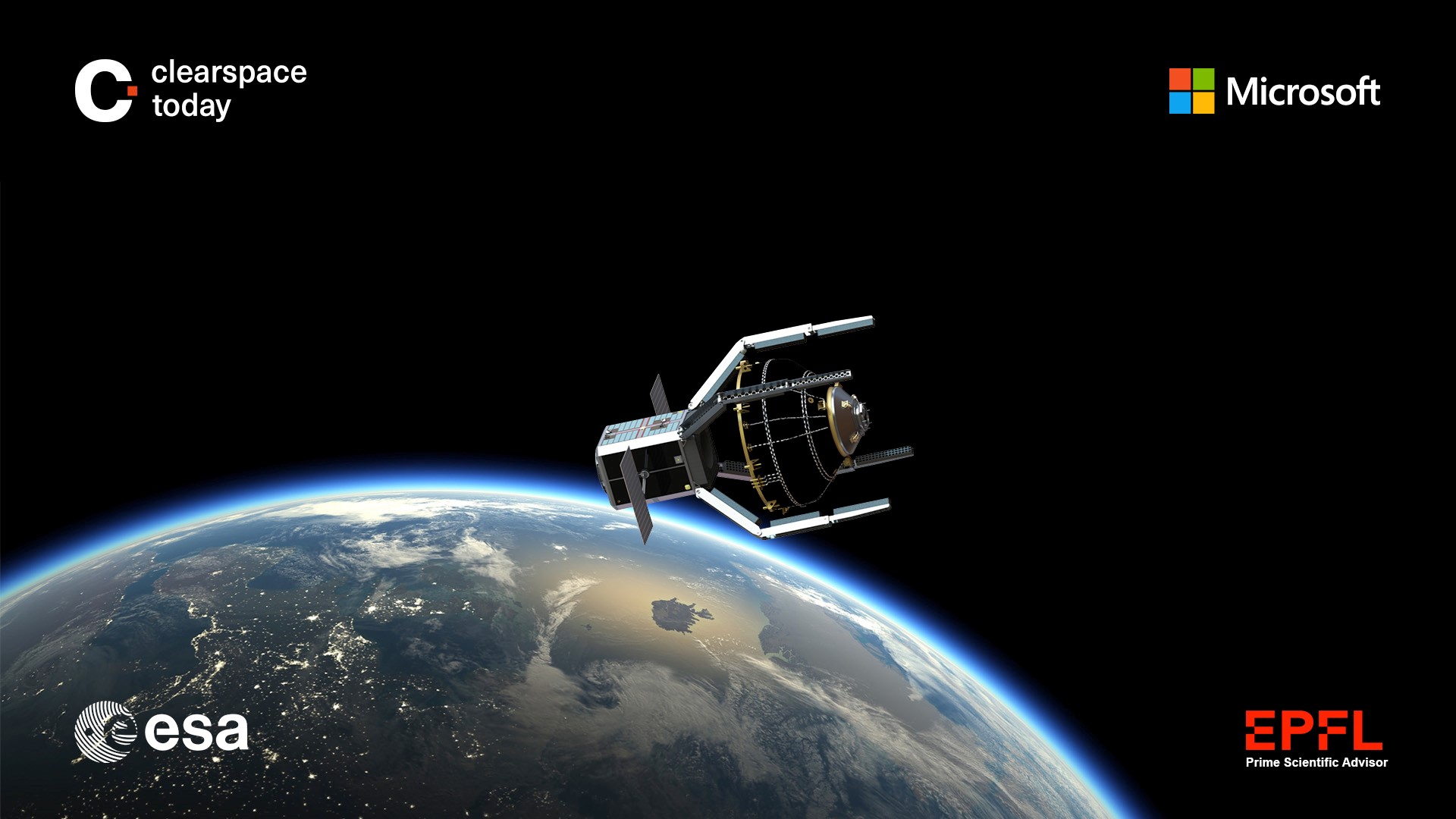Lesen Sie diesen Artikel auf Deutsch
Lire cet article en français
The Swiss start-up company ClearSpace has been awarded to become a member of the exclusive Microsoft Global Social Entrepreneurship Program. Microsoft’s jury was impressed and enthusiastic about the Team based in Ecublens, that is committed to capture and remove non-functioning or unresponsive satellites in space to free up the orbit for future operations and reducing risks of collision.
Today there are more than 3,000 failed satellites orbiting Earth. These uncontrollable objects present risks of explosions or collisions with other satellites. With a rapidly increasing number of satellites launched every year, the population of man-made debris orbiting Earth has exploded over the last ten years. Keeping space clean in order to ensure sustainable growth in the future has become a huge challenge.
ClearSpace is committed to solve this problem. The international team, which brings together many years of experience from science and research (EPFL, MIT), agencies (ESA, Nasa/JPL and DLR) and major prime integrators (Airbus, Thales, Ruag, SSTL and others), can also count on the support of a high-ranking Advisory Board, including Swiss astronaut Claude Nicollier. The idea emerged from the joint work of some of the founding members of ClearSpace at the EPFL Space Center after the launch of the SwissCube satellite in 2009. The team decided to tackle the problem following repeated notifications by the US Air Force Space observation center of collision risks between the SwissCube and other Space objects.
Pioneering the capture and removal of space debris
The European Space Agency (ESA) has decided to break the ground into sustainable Space development by pioneering this landmark mission and selected ClearSpace to lead it. ClearSpace’s mission is to execute the first-ever capture and removal of an uncontrolled satellite, that is orbiting at 7 Kilometers per second at more than 600 Kilometer above sea level. The team, in collaboration with renowned industrial partners, will focus on developing state-of-the-art technologies for sensor fusion, autonomous navigation and space robotics, integrating them into an agile chaser. The mission called ClearSpace-1 is scheduled for 2025.
Luc Piguet, CEO and founder of ClearSpace, is convinced: “ClearSpace-1 is more than a ground-breaking mission and a high-impact technical accomplishment. It is the first milestone on the road to a future Space debris removal service at an affordable cost. In collaboration with ESA and our partners, we aim to create a precedent with a transformative impact on the Space industry, that captures the imagination, inspires the public, law makers and the Space industry as a whole. We are honored and delighted to have been selected for the Global Social Entrepreneurship Program and look forward to taking our collaboration to the next level – benefitting from Microsoft’s deep expertise and global reach while pursuing our quest in a cutting-edge, secure environment.”
Recognition and support from Microsoft’s Global Social Entrepreneurship Program
The Microsoft Global Social Entrepreneurship Program supports social impact startups with technology, connections, and grants so that the teams can focus on bringing their big vision to life and making the world a better place.
Andrew Reid, Head of the Swiss Microsoft for Startups program is very excited about the expanded collaboration with ClearSpace: “When we first heard about ClearSpace’s mission, we knew immediately that we would love to support them with our local startup program. The fact that ClearSpace has been selected to join Microsoft’s Global Social Entrepreneurship Program is a well-deserved recognition of the achievements and commitment of the entire team. This enables us to support ClearSpace on a global level and with even more international resources.”
The Global Social Entrepreneurship Program is a worldwide initiative for start-ups whose headquarters are located in one of the countries covered by our Azure global infrastructure (54 regions worldwide – available in 140 countries).





